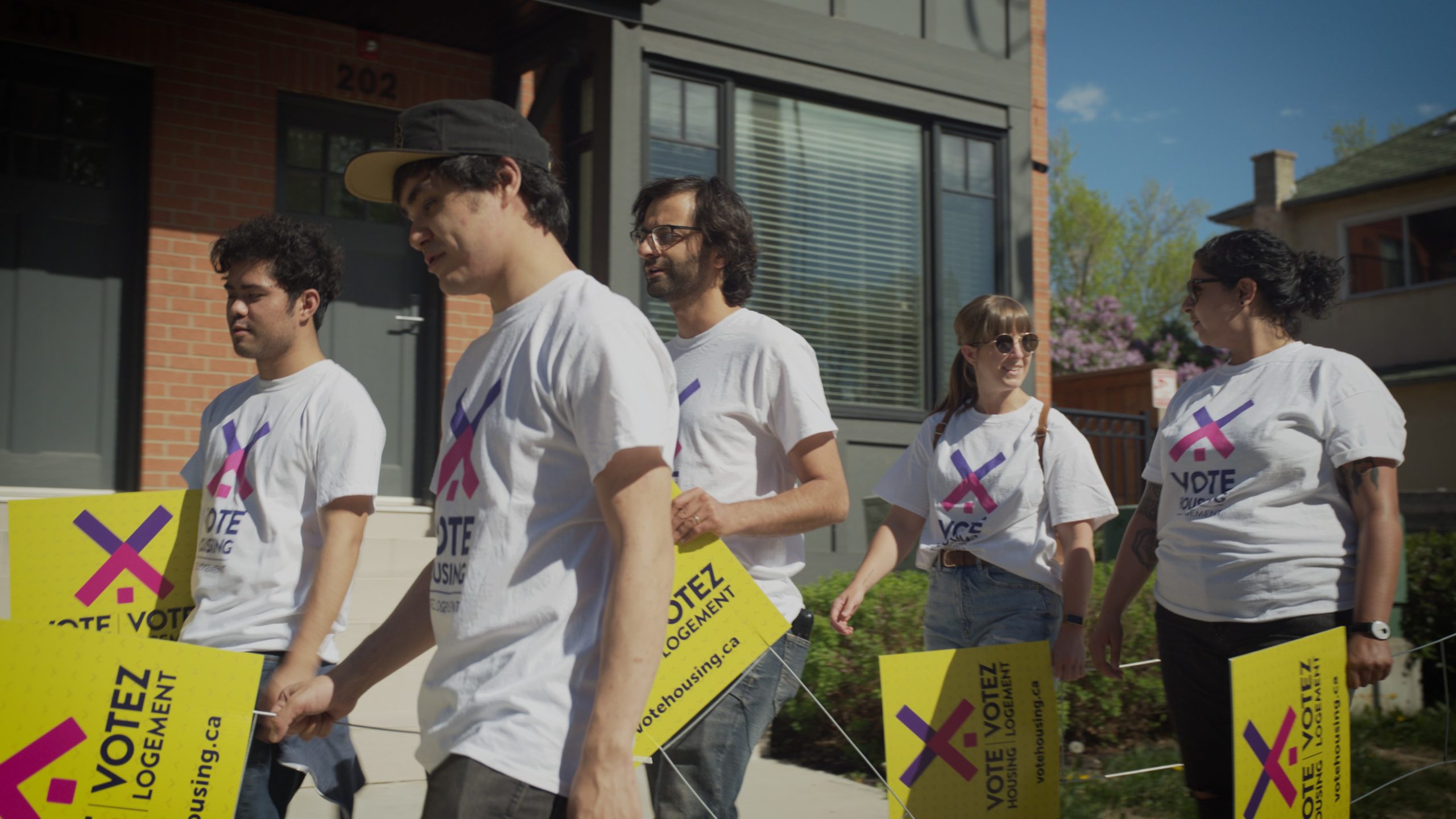Are you hearing rumours that are getting louder and louder? A federal election is just around the corner. Which issues are you going to be watching closely? How are you going to determine who you’re going to vote for? If you subscribe to our newsletter, we know you care about community housing. The timing is perfect for you to personally contribute to making housing a key issue during the election.
If you don’t already know, the Canadian Alliance to End Homelessness, the Co-operative Housing Federation of Canada, the Canadian Lived Experience Leadership Network and the Canadian Housing and Renewal Association have come together in recent months to create the “Vote Housing” campaign.
The purpose of this awareness campaign is to ensure that housing and the fight against homelessness are key issues for candidates looking for our votes in this election.
But if this non-partisan effort is to bear fruit, Canadians across the country must mobilize and tell political parties that their votes will be determined by the commitments they make to support housing and fight homelessness. You have to create conversations, ask questions, demand solutions, take a stand. In short, we have to put some pressure on.
“Vote Housing” is therefore looking for volunteers to ensure that the message is clearly heard by the various political parties and voters from across the country. For Michelle Bilek, who is working to mobilize volunteers for the campaign, that kind of movement can have a real impact.
“When people say to [candidates] ‘You know what, if you don’t address this issue, I’m not going to vote for you’—when a politician’s job is on the line—that pressure from the voters goes a long way” says Bilek, who works as a national organizer for the Canadian Alliance to End Homelessness. “We want to create a grassroots movement… We want a movement across Canada.”
The mobilization the campaign is seeking will not be merely virtual. Bilek sees it as the “appropriation of an election campaign.” It will use methods similar to those used by political parties in local ridings, such as door-to-door work, putting up signs, distributing pamphlets, in-person chats, organizing events, phone blitzes, etc.
Bilek herself ran in five elections. She knows first-hand the impact that direct contact between candidates and voters can have.
“I think it’s more important [than talking through] a screen.” When she was a candidate, “I wanted a piece of my literature in the hands of every household in my riding. I wanted them to know who I stand for. I wanted them to actually say: ‘My candidate came to my door. I didn’t know who I was going to vote for, but just for that reason, because they spoke to me and they told me about what issues are important to them, I’m going to vote for them.’”
“The same thing can happen when our volunteers go to doors. They will say, “[Housing] is actually the most important issue of the day right now. And it’s an important issue to me. It’s an important issue to the people in my community. It’s an important issue to my daughter. It’s an important issue to my grandchildren. It’s an important issue to the folks sleeping under the bridge.’ And you know, they are probably going to start paying attention to the platforms. They’re going to probably start engaging their candidates and ensuring that they are taking this issue seriously.”
Anyone who has ever campaigned for a political party knows that working with a group to try to elect someone who believes in the same things as you is extremely energizing. Even though it’s a lot of work, it creates a great sense of community.
“It’s like you meet people you never even knew,” Bilek says. “Your networks grow. And then it’s almost like a family. You stay connected to that family well beyond the election.”
And while grassroots engagement will be important for the campaign, there will also be opportunities to do virtual volunteering for those who are better suited to that.
If you want to get involved as a “Vote Housing” volunteer, complete the form here. Training and orientation sessions will be held on several occasions, Bilek notes. If you want to support the campaign, but can’t get directly involved, you can also pledge to “vote housing” by registering here.
“We’d like to have an army of volunteers across Canada,” says Bilek.
Please feel free to spread the word and recruit friends and family. Because, for too many people, housing is the most important issue right now, and elections are an important time to take action.
Happy August!
***
This editorial appears in the InfoCentre newsletter. To subscribe to our monthly newsletter, click here.



